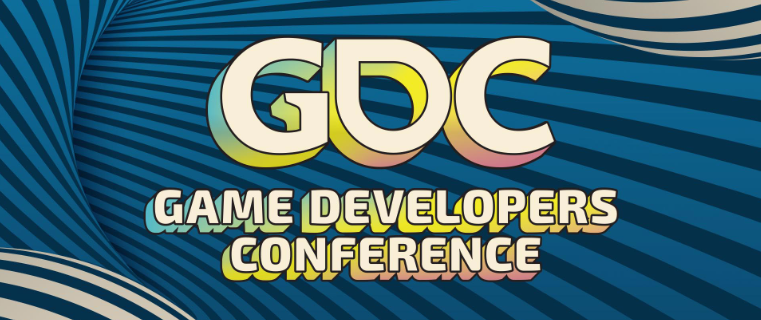After a half-week in San Francisco, I am back home. I just attended the Game Developers Conference (gdconf.com). I have a soft spot in my heart for GDC… I feel like I am at home when I am talking with other professional game developers. A part of me wants to sit my creaky bones down in a chair, point my cane at you all, and explain how it used to be better while shaking a fist. Once upon a time, it was in San Jose, more intimate and less Brought To You By Our Esteemed Sponsors. The Sponsors were always there, but in this day and age it feels like they take every opportunity to try and smash their logos and products into your face.
I attended half a dozen sessions this year or so. Admittedly, about half of them were at an offsite event focusing on Revenue Optimization that my company organized. These sessions felt like “The GDC of Old” to me.
I also attended two amazing sessions this week. Zac Litton put on the first of these. I had the pleasure of working with Zac indirectly during the early mobile era and from what I can read on LinkedIn, his career story looks amazing. His presentation was on engineering leadership. Some excellent ideas on how to think about your engineering leadership were presented here. I need to think about how this will benefit the engineers I work with now.
The second amazing presentation was by the ever-so-humble Raph Koster. He was celebrating 20 years of his book, A Theory of Fun. As an Amazon Paid Affiliate, I will link it to you from Amazon in my continuing attempt to wrench nickels from their profitability.
It is great to hear Raph speak for many reasons. First, my serious love affair with Ultima Online was why I pursued a game career. The second is that when I bought myself my first GDC badge, I walked up to a group of game developers talking about MMOs, and Raph was one of them. The first game developers I met were all MMO developers, and I stood there (more than a little awkward) listening to them share stories, thoughts, and anecdotes about their game launches and current live ops issues. It was quite educational. The final reason is that his presentation was a nice update to the state-of-the-art on his “Theory of Fun.” Do I link it twice? I must. You should buy this book.
One of my takeaways from the presentation was that the “two marshmallow” experiment has been debunked. I am a little sad about this one. I use this experiment all of the time because of its cleverness. Another takeaway I shared with the audience at the end of the presentation as a comment is that we need to ensure we are bringing industry and academia together. Someone in the audience asked, “Can you make fun without formal game design training?” Raph quickly said, “No.” The audience chuckled. The real answer is “not anymore, and not for a commercial production.” When the game industry started, I think many people made fun games without any formal game designer training simply because it did not yet exist. The budgets and teams for games these days are so big that I believe it is certainly a necessity.
I attended a few other talks. I was keen to attend a talk on successful remote studios. I was irritated that one of the panelists was very excited about remote work, provided the vast majority of the team was within driving distance. It is like saying you are a vegetarian because the beef you are eating does not itself eat meat. It distracted from the presentation and diminished the overall value of the session. I went there to see if there were any new tricks I could learn, and mostly, it reinforced stuff I already knew. This is okay. We cannot win them all. I was worried I would not learn anything from this presentation because it looked like the amount of time I have remotely led teams exceeded the sum of half, if not all, of the panelists.
The final thought I want to leave you all with is that, generally, there is “one thing” that everyone is talking about each year. Usually, it is “the next big thing”. MMOs. Microtransactions. Social Games. Casual Games. Mobile Games. Mobile Games 2.0.
I did not see any of that this year. The conversations, the sessions, and the exposition floor were a shotgun blast of topics. Layoffs. Consolidation. The continued suckiness of web3 games. The fear of AI games. The continued repercussions of Apple Privacy on marketing (and subsequently, escaping from the app store).
I should rephrase that. If you stared at everything hard enough, you would see a rising conversation about the power of Games As A Platform. You have to search for it. The reason is that it has some energy similar to the AI game conversations. Minecraft, Fortnite and Roblox are a gateway product to a new generation of game developers. A hungry, excited, and amateur generation of game developers. And much like “the scary AI,” it is coming for “your jerbs.”
I predict we will see and hear more about this next year. Roblox is in a happy position of having several hundred million dollars of creator payouts that put them at the top of the GAAP leaderboard. However, UEFN paid out three hundred million dollars to creators and got there faster than Roblox got to three hundred million dollars. If you are good at arithmetic, this is now a billion-dollar marketplace. Sort of. Maybe I will talk more about that in a future week.
See you all soon!
